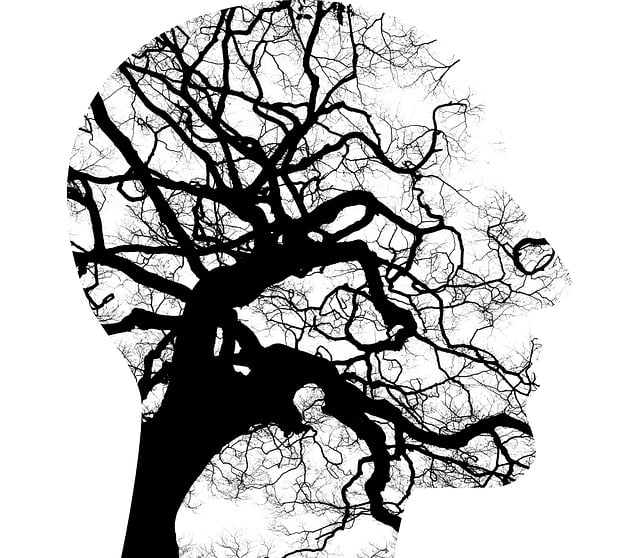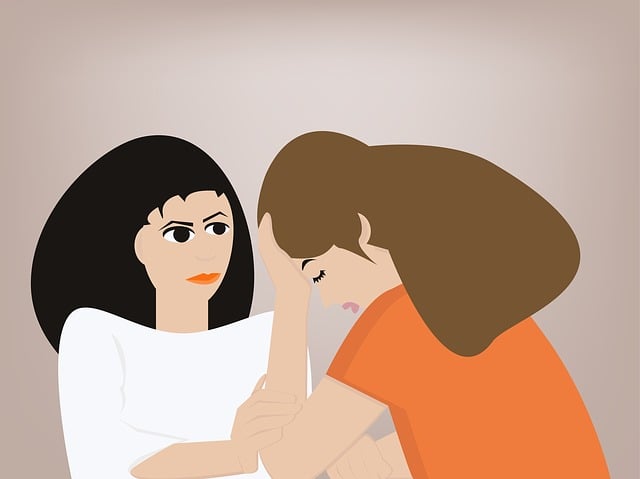Aurora Psychosis Therapy advocates for holistic mental well-being through public education and awareness campaigns tailored to diverse audiences. By integrating mental health info in curricula, using creative workshops, storytelling, and peer support networks, they destigmatize conditions and encourage early help. Their digital strategies leverage social media and online platforms to reach youth and older adults, while segmenting target audiences ensures campaign relevance. Measuring success through both quantitative (website traffic, engagement) and qualitative (focus groups) methods enhances campaign impact, fostering a culture of emotional healing.
In an era where mental health awareness is ever-growing, effective public campaigns play a pivotal role. This article explores strategies to enhance understanding and address psychological issues through education. We delve into innovative approaches like Aurora Psychosis Therapy, offering unique perspectives on campaigning. Learn about crafting tailored messages for diverse audiences and leveraging digital platforms for maximum impact. Additionally, discover evaluation methods ensuring continuous improvement, highlighting the importance of measurement in public health initiatives.
- Understanding Public Awareness: The Role of Education in Mental Health
- Aurora Psychosis Therapy: A Unique Approach to Campaigning
- Designing Effective Messaging for Target Audiences
- Utilizing Digital Platforms and Social Media for Maximum Impact
- Measuring Success: Evaluation and Feedback for Continuous Improvement
Understanding Public Awareness: The Role of Education in Mental Health

Public awareness about mental health is pivotal, especially when addressing prevalent issues like Aurora Psychosis Therapy. Education plays a crucial role in destigmatizing mental illness and fostering empathy within communities. By integrating information about various conditions, their causes, and available support systems into educational curricula, society can cultivate an environment where individuals feel more comfortable seeking help. This proactive approach not only equips people with the knowledge to recognize signs of distress but also encourages early intervention, which is essential for effective treatment.
Moreover, incorporating conflict resolution techniques and promoting positive thinking as part of mental health education can empower individuals to manage stress and adversity. Such skills are particularly beneficial in trauma support services, enabling people to navigate challenging situations with resilience. Through comprehensive education, communities can build a network of support that extends beyond traditional therapy settings, creating a holistic ecosystem for mental well-being.
Aurora Psychosis Therapy: A Unique Approach to Campaigning

Aurora Psychosis Therapy offers a unique and innovative approach to public awareness campaigns, focusing on mental health and emotional well-being. This therapy model recognizes that engaging communities in conversations about mental health can be transformative. By combining therapeutic techniques with creative campaign strategies, Aurora aims to reduce stigma and increase accessibility to support systems. Their methods involve interactive workshops, storytelling sessions, and peer support networks, fostering an environment where individuals feel empowered to share their experiences.
This approach extends beyond traditional awareness campaigns by incorporating the Burnout Prevention Strategies for Healthcare Providers and emphasizing community-based Outreach Program Implementation. Through these initiatives, Aurora Psychosis Therapy promotes emotional healing processes on a larger scale. By involving the community in proactive measures, they ensure that mental health support becomes an integral part of daily life, making it accessible to all.
Designing Effective Messaging for Target Audiences

In crafting public awareness campaigns for mental health issues like Aurora Psychosis Therapy, understanding and segmenting target audiences is paramount. Effective messaging requires tailoring content to resonate with diverse groups, considering their unique perspectives, experiences, and communication preferences. For instance, when addressing youth, leveraging social media platforms and peer-to-peer narratives can foster open dialogue about mental well-being and encourage early intervention for issues like anxiety relief. Conversely, campaigns aimed at older adults might focus on community gatherings or print media to dispel stigma and promote accessible resources for mental health awareness.
By integrating keywords like Mental Health Awareness and Positive Thinking, while also alluding to strategies for Anxiety Relief, campaign creators can ensure their messages are both relevant and impactful. Balancing factual information with relatable stories, personal anecdotes, and inspirational calls-to-action strengthens the overall effectiveness of the communication, ultimately fostering a culture that prioritizes holistic well-being.
Utilizing Digital Platforms and Social Media for Maximum Impact

In today’s digital era, leveraging online platforms and social media offers immense potential for public awareness campaigns to achieve maximum impact. By utilizing these channels effectively, organizations like Aurora Psychosis Therapy can reach a vast and diverse audience with their initiatives aimed at promoting mental health and well-being. Digital tools enable the dissemination of valuable resources such as Mindfulness Meditation practices and Self-Awareness Exercises, fostering an environment where individuals can gain crucial insights into managing stress and enhancing overall resilience.
Social media platforms serve as powerful catalysts for engaging conversations around sensitive topics, breaking down barriers, and encouraging open dialogue. Through targeted campaigns and interactive content, Aurora Psychosis Therapy can facilitate discussions on Stress Management Workshops, ultimately empowering folks to take charge of their mental health proactively. This strategic use of digital platforms not only amplifies the reach of awareness campaigns but also ensures that information is accessible and engaging for modern audiences.
Measuring Success: Evaluation and Feedback for Continuous Improvement

Measuring success is a critical aspect of public awareness campaigns, especially when addressing sensitive topics like Aurora Psychosis Therapy. Evaluation and feedback mechanisms are essential tools to ensure that campaigns effectively raise awareness and promote emotional healing processes. By gathering data on campaign reach, engagement, and impact, organizations can make informed decisions for continuous improvement. This includes adjusting content strategies, refining messaging, and targeting specific demographics or communities that may require tailored interventions.
The process should incorporate both quantitative and qualitative methods to capture the nuanced effects of public awareness initiatives. Quantitative assessments might involve tracking website traffic, social media engagement rates, or survey responses from a diverse range of participants. Qualitative feedback through focus groups, interviews, or open-ended comments provides deeper insights into individual experiences and perceptions, including the potential for compassion cultivation practices and crisis intervention guidance to resonate with different audiences. This holistic evaluation approach allows for a more comprehensive understanding of campaign success and contributes to fostering effective emotional healing processes.
Public awareness campaigns play a pivotal role in shaping societal perceptions and behaviors, especially regarding mental health. By combining innovative strategies like Aurora Psychosis Therapy with targeted messaging and digital engagement, we can effectively reach diverse audiences. Continuous evaluation and feedback loops are essential to measure campaign success and ensure ongoing improvement. This data-driven approach allows us to adapt and refine our initiatives, ultimately fostering a more informed and supportive community for mental well-being.














